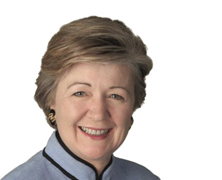The most significant obstacle I overcame in my career, especially in the beginning, was being a non-engineer in an engineering firm. My advice is to really be introspectiveandself-aware–learntoplay to your strengths and manage your weaknesses. For example, I’m not a technical person, but I have a technical aptitude and I use this to give the teams I lead the leverage and resources they need to get the job done. I’m also not a micromanager. I would much rather set the vision, get the right team and help them get the job done.
As a project manager, the focus is on how well you serve the client and the project. For women who want to develop their project management skills, I recommend that you build a toolkit of skills. For example, learn to build project plans, then develop a detailed understanding of how to manage costs and project schedules, and look for opportunities to interface with clients.
Understanding my client’s desired outcomes is one of the most important things I can do. It’s important to understand what they really want and then craft a path to get them there. One key strategy is to continually ask “Why?” or “Why not?” This line of questioning can create another path that may be more advantageous for them.
When we started on the Rocky Flats Closure project–one of the most well-known nuclear cleanups worldwide–our client, the U.S. Department of Energy, said, “We expect this cleanup to be completed in 70 years and cost $36 billion dollars.” By asking “why?” our team was able to develop a different path that enabled the closure of Rocky Flats to be completed 60 years ahead of schedule and $29 billion under budget.
Mentoring: Building strong alliances with people I’m working with on projects has been extremely valuable for me. I think it is almost more important than having a mentor. This network of people knows what I’m capable of and when an opportunity arises they say, “Let’s talk to Nancy about that.”
As a mentor, I try to help people get focused on what they really want to do. It’s important to help mentees identify what activities they enjoy doing rather than the job title they think they want.







